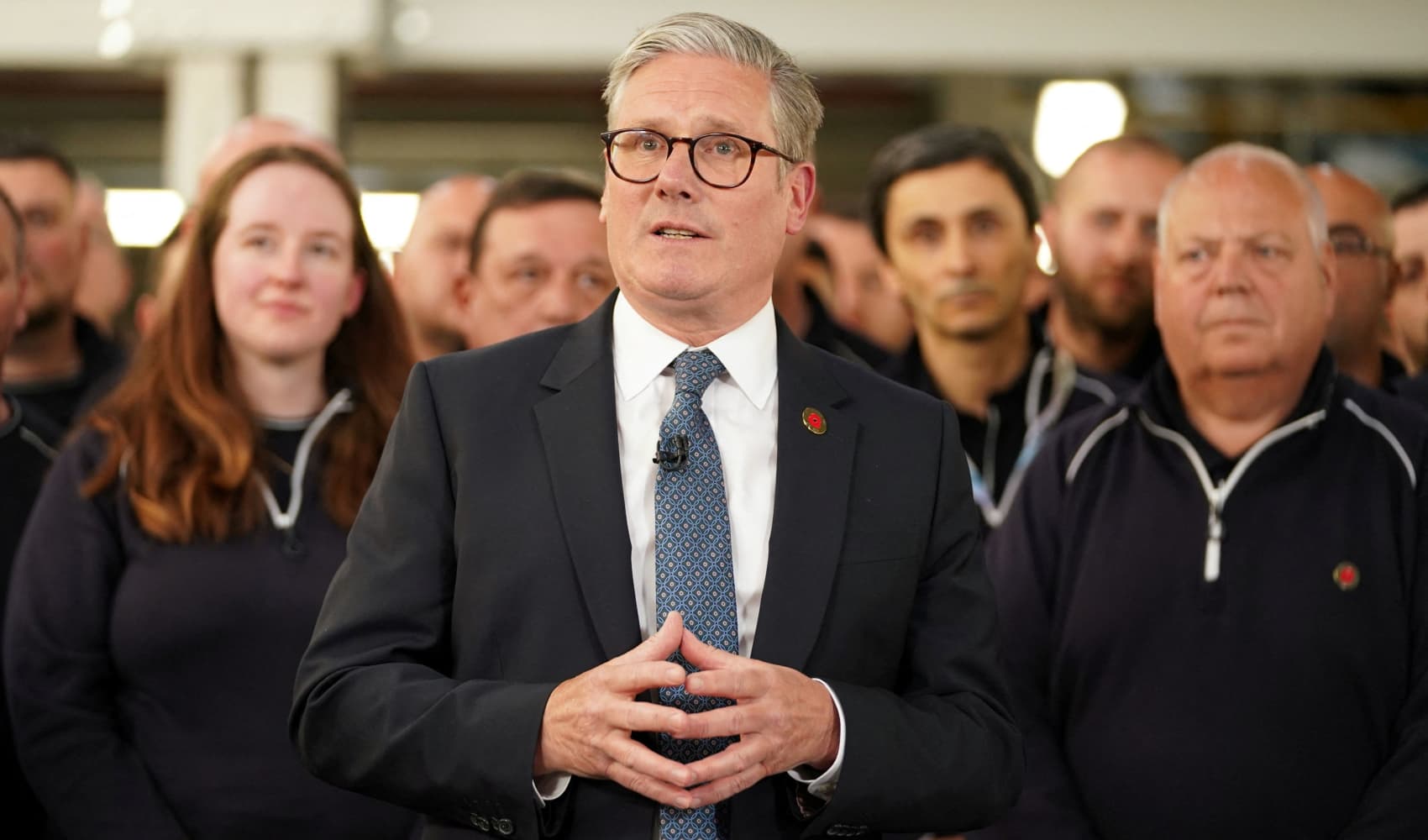Bank of England Rate Cut: How it Impacts YOU!
Bank of England Cuts Rates! What It Means For Your Wallet
Introduction: Your Money, the Bank, and a Big Decision
The financial world can feel like a complicated maze, right? But sometimes, big decisions happen that directly impact you, your savings, and your spending. Think of the Bank of England as the conductor of an economic orchestra. Recently, they've made a significant move: they've lowered interest rates. But what does that actually *mean* for you? Don't worry; we're here to break it down in plain English, no jargon required.
The Big News: Interest Rates Are Down!
On Thursday, the Bank of England (BOE) decided to cut its key interest rate from 4.5% to 4.25%. This might not sound like much, but it's a significant shift with ripple effects across the economy. The BOE's Monetary Policy Committee (MPC) made this decision against a backdrop of sluggish economic growth and uncertainty stemming from international trade tensions.
Why did they do it?
The decision wasn't unanimous. Five of the nine MPC members voted for the cut. Some wanted an even steeper cut of 0.5%, while others preferred to hold steady. The key reasons behind the rate cut include:
- Slowing Economic Growth: The UK economy hasn't been performing as strongly as hoped.
- Trade Uncertainty: Global trade tensions, particularly those involving the United States, are creating a cloud of economic uncertainty.
- Inflation Concerns: While important, the focus at this point is bolstering economic growth to stave off potential recession.
Relief for Borrowers: A Welcome Reprieve
Perhaps the most immediate impact of the rate cut is the potential relief for borrowers. Lower interest rates mean lower borrowing costs. Think about your mortgage, your car loan, or even your credit card debt. Here's how it might affect you:
Mortgage Holders: Variable Rates Could Fall
If you have a variable-rate mortgage (one where your interest rate fluctuates with the BOE's base rate), you're likely to see your monthly payments decrease. This is because your mortgage rate is directly linked to the BOE's rate.
Personal Loans and Credit Cards: A Bit Less Painful
Interest rates on personal loans and credit cards may also fall, although this depends on your lender. It's a good time to shop around and see if you can get a better rate on your existing debt.
Businesses Rejoice: A Boost for Investment
Lower interest rates can also be good news for businesses. When borrowing becomes cheaper, companies are more likely to invest in new projects, expand their operations, and hire more people. This can lead to:
Increased Investment: Fueling Growth
With lower borrowing costs, businesses may be more willing to take risks and invest in new technologies, equipment, or expansion plans.
Job Creation: A Positive Spin-off
As businesses grow, they often need to hire more employees. This can help to reduce unemployment and boost overall economic activity.
Consumers Benefit: More Money in Your Pocket
Ultimately, a healthy economy benefits everyone. Lower interest rates can translate into more disposable income for consumers. How?
More Spending Power: A Confidence Boost
When people have more money in their pockets, they tend to spend more. This increased consumer spending can help to stimulate economic growth.
Lower Savings Rates: A Trade-Off
However, there's a trade-off. While borrowing becomes cheaper, saving becomes less attractive. Interest rates on savings accounts are likely to fall, meaning you'll earn less on your savings.
The Downside: A Word of Caution
While lower interest rates are generally seen as a positive, there are potential downsides to consider.
Inflation: A Potential Threat
If the rate cut stimulates too much demand, it could lead to inflation, where prices rise faster than wages. This could erode the purchasing power of your money.
Currency Weakness: The Pound Takes a Dip
Lower interest rates can also weaken the value of the pound, making imports more expensive. This could also contribute to inflation.
Savings Accounts: What to Expect
As mentioned earlier, savings accounts are likely to be affected by the rate cut. Expect to see interest rates on your savings accounts decline. This means you'll earn less on your savings than you did before.
Shop Around: Don't Settle for Less
It's more important than ever to shop around for the best savings rates. Compare different banks and building societies to find the most competitive offers.
Consider Alternatives: Explore Different Options
If you're not happy with the returns on traditional savings accounts, consider exploring alternative investment options, such as bonds or stocks. However, remember that these options come with higher risks.
The Housing Market: A Potential Boost
The housing market is particularly sensitive to interest rate changes. Lower interest rates can make mortgages more affordable, which can boost demand for housing.
Increased Demand: Prices May Rise
Increased demand can lead to higher house prices, which could be good news for homeowners but bad news for first-time buyers.
First-Time Buyers: A Mixed Bag
Lower mortgage rates can make it easier for first-time buyers to get on the property ladder. However, higher house prices could offset some of the benefits.
The Pound Sterling: A Currency in Flux
As mentioned earlier, the value of the pound can be affected by interest rate changes. A rate cut typically weakens the pound, as it makes the UK a less attractive destination for foreign investment.
Import Prices: Expect Increases
A weaker pound makes imports more expensive, which can lead to higher prices for imported goods and services.
Export Opportunities: A Silver Lining
However, a weaker pound can also boost exports, as UK goods and services become more competitive in international markets.
Brexit and Beyond: The Bigger Picture
The Bank of England's decision to cut interest rates is just one piece of a much larger puzzle. The UK economy is still grappling with the effects of Brexit and the ongoing uncertainty surrounding its future relationship with the European Union.
Navigating Uncertainty: A Challenging Task
The BOE is trying to navigate a complex and uncertain economic landscape. Its decisions are aimed at supporting economic growth while managing the risks of inflation and currency weakness.
Expert Opinions: What the Economists Are Saying
Economists have mixed opinions on the BOE's decision to cut interest rates. Some believe it's a necessary measure to support economic growth, while others worry about the potential risks of inflation and currency weakness.
Weighing the Pros and Cons: A Difficult Call
The BOE had to weigh the potential benefits of a rate cut against the potential risks. It's a difficult decision with no easy answers.
What to Do Now: Your Action Plan
So, what should you do in light of the BOE's rate cut? Here's a simple action plan:
- Review your debts: See if you can refinance your mortgage or other loans to take advantage of lower interest rates.
- Shop around for savings accounts: Compare different banks and building societies to find the best rates.
- Consider your investment options: Explore alternative investment options if you're not happy with the returns on traditional savings accounts.
- Monitor the economy: Keep an eye on inflation and currency movements to see how they might affect your finances.
- Seek professional advice: If you're unsure about what to do, consult a financial advisor.
The Future: More Rate Cuts on the Horizon?
It's difficult to predict what the Bank of England will do in the future. However, if the economy continues to struggle, it's possible that they could cut interest rates further. The future will depend on a multitude of factors that constantly evolve.
Conclusion: Navigating the Economic Seas
The Bank of England's decision to cut interest rates is a significant event with potential implications for your wallet. While it could bring relief to borrowers and boost economic growth, it also carries risks such as inflation and currency weakness. By understanding the potential impacts and taking appropriate action, you can navigate these economic seas and protect your financial well-being.
Frequently Asked Questions (FAQs)
- 1. Will my mortgage payments definitely go down?
- If you have a variable-rate mortgage, your payments *should* decrease. Contact your lender to confirm the exact amount and timing. If you have a fixed-rate mortgage, your payments won't change until your fixed-rate period ends.
- 2. Should I switch my savings account?
- It's always a good idea to compare savings rates. If you find a significantly better rate elsewhere, consider switching. But factor in any potential fees or penalties for closing your current account.
- 3. Will the interest rate cut affect my investments?
- Potentially. Lower interest rates can boost the stock market, but they can also weaken the pound, which can affect investments in foreign assets. Consider consulting a financial advisor to assess your portfolio.
- 4. Is now a good time to buy a house?
- That depends on your individual circumstances. Lower mortgage rates can make it more affordable, but rising house prices could offset that benefit. Carefully assess your finances and consider your long-term goals.
- 5. How does the Bank of England's decision affect inflation?
- Lower interest rates can stimulate demand, which could lead to higher inflation. The Bank of England will be closely monitoring inflation to ensure it stays within its target range.

